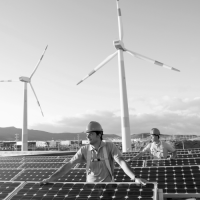- OPEN TRAINING PROGRAMMES
MCE's 3 Leadership Areas
Skills to manage yourself & your work
(Leading Self)
- Communication & PresentationCommunication & Presentation
- Influencing & NegotiationInfluencing & Negotiation
- Conflict ManagementConflict Management
- Time & Stress ManagementTime & Stress Management
- Analytics & Strategic ThinkingAnalytics & Strategic Thinking
Skills to lead & motivate others
(Leading Others)
- LeadershipLeadership
- Women's Leadership CentreWomen's Leadership Centre
- Managing People & TeamsManaging People & Teams
- Diversity, Equity and InclusionDiversity, Equity and Inclusion
- Managing ChangeManaging Change
Skills to drive organisational success
(Leading Business)
- AMA-CPM® CertificationAMA-CPM® Certification
- Business Strategy & PlanningBusiness Strategy & Planning
- Finance & ControllingFinance & Controlling
- Project ManagementProject Management
- AI & Digital TransformationAI & Digital Transformation
- Sales & MarketingSales & Marketing
- Innovation & AgilityInnovation & Agility
- HR & Talent ManagementHR & Talent Management
Available in Various Cities Throughout EMEA
SEE ALLAvailable as Public Programmes or Self-Paced OnDemand Courses
- Live OnlineLive Online Live, interactive sessions for busy international schedules.
- OnDemand LibraryOnDemand Library Self-paced e-learning courses
Discover MCE Programmes For Your Industry
- Materials & MiningMaterials & Mining
- Government & International OrganizationsGovernment & International Organizations
- BankingBanking
Find the Right Learning Solutions For Your Current Or Future Role
More Options
- OnDemand CoursesOnDemand Courses
- MCE WeeksMCE Weeks
- MCE EssentialsMCE Essentials
- Virtual Reality ModulesVirtual Reality Modules
- Women's Leadership CentreWomen's Leadership Centre
- What Leadership is ForBook PromoWhat Leadership is For
Search your programme by
Other Options
- OnDemand CoursesOnDemand Courses
- MCE WeeksMCE Weeks
- MCE EssentialsMCE Essentials
- Virtual Reality ModulesVirtual Reality Modules
- Women's Leadership CentreWomen's Leadership Centre
- What Leadership is ForBook PromoWhat Leadership is For
-
- MINI MBA’S
MCE Mini MBA
Moving from Technical Expert to International Business Manager.
Learning Options
- 5 days in person
- 12 online sessions
Next Sessions
- 16 Mar – 20 Mar 2026 (Milan)
- 23 Mar – 27 Mar 2026 (Vienna)
- 23 Mar – 27 Mar 2026 (Helsinki)
- 23 Mar – 27 Mar 2026 (Istanbul)
Mini MBA's tailored to your Industry
MCE Mini MBA
Develop your all-round managerial skills in only 5 days or 12 online sessions and boost your management career.
- Learn moreLearn more
Mini MBA's tailored to your Industry
- PharmaceuticalPharmaceutical
- EnergyEnergy
- ChemicalChemical
- MiningMining
- Retail BankingRetail Banking
- Medical DevicesMedical Devices
- COMPANY & TEAM SOLUTIONS
Solutions for your Company & Teams
- MCE's Customized Learning SolutionsMCE's Customized Learning Solutions
- The MCE Approach - Focusing on Your Goals & NeedsThe MCE Approach - Focusing on Your Goals & Needs
- Client StoriesClient Stories
- MCE Services for Your CompanyMCE Services for Your Company
Quicklinks
- Licensing of ProgrammesLicensing of Programmes
- AMA-CPM® Certification
- All Access PassesAll Access Passes
Save up to 50% on your training budget
One annual budget. Flexible use across programmes throughout the year
-
- INSIGHTS
Business Resources
- Download MCE Training GuideHighlightDownload MCE Training Guide
- Essential Skills and Industries InsightsEssential Skills and Industries Insights
- Artificial Intelligence (AI)Artificial Intelligence (AI)
- LeadershipLeadership
- Life Sciences IndustryLife Sciences Industry
- Women's Leadership CentreWomen's Leadership Centre
- and more...and more...
- Business ArticlesBusiness Articles
- Research & WhitepapersResearch & Whitepapers
Get Our Latest Updates
Subscribe to our email newsletters that highlight our latest research-based articles, products, programmes, and more to help you strengthen your leadership skills.
Building Leadership Capability for an AI-Enabled Organisation
Helping leaders and professionals use AI with confidence, judgment, and responsibility.
-
- OPEN TRAINING PROGRAMMES
MCE's 3 Leadership Areas
Skills to manage yourself & your work
(Leading Self)
- Communication & PresentationCommunication & Presentation
- Influencing & NegotiationInfluencing & Negotiation
- Conflict ManagementConflict Management
- Time & Stress ManagementTime & Stress Management
- Analytics & Strategic ThinkingAnalytics & Strategic Thinking
Skills to lead & motivate others
(Leading Others)
- LeadershipLeadership
- Women's Leadership CentreWomen's Leadership Centre
- Managing People & TeamsManaging People & Teams
- Diversity, Equity and InclusionDiversity, Equity and Inclusion
- Managing ChangeManaging Change
Skills to drive organisational success
(Leading Business)
- AMA-CPM® CertificationAMA-CPM® Certification
- Business Strategy & PlanningBusiness Strategy & Planning
- Finance & ControllingFinance & Controlling
- Project ManagementProject Management
- AI & Digital TransformationAI & Digital Transformation
- Sales & MarketingSales & Marketing
- Innovation & AgilityInnovation & Agility
- HR & Talent ManagementHR & Talent Management
Available in Various Cities Throughout EMEA
SEE ALLAvailable as Public Programmes or Self-Paced OnDemand Courses
- Live OnlineLive Online Live, interactive sessions for busy international schedules.
- OnDemand LibraryOnDemand Library Self-paced e-learning courses
Discover MCE Programmes For Your Industry
- Materials & MiningMaterials & Mining
- Government & International OrganizationsGovernment & International Organizations
- BankingBanking
Find the Right Learning Solutions For Your Current Or Future Role
More Options
- OnDemand CoursesOnDemand Courses
- MCE WeeksMCE Weeks
- MCE EssentialsMCE Essentials
- Virtual Reality ModulesVirtual Reality Modules
- Women's Leadership CentreWomen's Leadership Centre
- What Leadership is ForBook PromoWhat Leadership is For
Search your programme by
Other Options
- OnDemand CoursesOnDemand Courses
- MCE WeeksMCE Weeks
- MCE EssentialsMCE Essentials
- Virtual Reality ModulesVirtual Reality Modules
- Women's Leadership CentreWomen's Leadership Centre
- What Leadership is ForBook PromoWhat Leadership is For
-
- MINI MBA’S
MCE Mini MBA
Moving from Technical Expert to International Business Manager.
Learning Options
- 5 days in person
- 12 online sessions
Next Sessions
- 16 Mar – 20 Mar 2026 (Milan)
- 23 Mar – 27 Mar 2026 (Vienna)
- 23 Mar – 27 Mar 2026 (Helsinki)
- 23 Mar – 27 Mar 2026 (Istanbul)
Mini MBA's tailored to your Industry
MCE Mini MBA
Develop your all-round managerial skills in only 5 days or 12 online sessions and boost your management career.
- Learn moreLearn more
Mini MBA's tailored to your Industry
- PharmaceuticalPharmaceutical
- EnergyEnergy
- ChemicalChemical
- MiningMining
- Retail BankingRetail Banking
- Medical DevicesMedical Devices
- COMPANY & TEAM SOLUTIONS
Solutions for your Company & Teams
- MCE's Customized Learning SolutionsMCE's Customized Learning Solutions
- The MCE Approach - Focusing on Your Goals & NeedsThe MCE Approach - Focusing on Your Goals & Needs
- Client StoriesClient Stories
- MCE Services for Your CompanyMCE Services for Your Company
Quicklinks
- Licensing of ProgrammesLicensing of Programmes
- AMA-CPM® Certification
- All Access PassesAll Access Passes
Save up to 50% on your training budget
One annual budget. Flexible use across programmes throughout the year
-
- INSIGHTS
Business Resources
- Download MCE Training GuideHighlightDownload MCE Training Guide
- Essential Skills and Industries InsightsEssential Skills and Industries Insights
- Artificial Intelligence (AI)Artificial Intelligence (AI)
- LeadershipLeadership
- Life Sciences IndustryLife Sciences Industry
- Women's Leadership CentreWomen's Leadership Centre
- and more...and more...
- Business ArticlesBusiness Articles
- Research & WhitepapersResearch & Whitepapers
Get Our Latest Updates
Subscribe to our email newsletters that highlight our latest research-based articles, products, programmes, and more to help you strengthen your leadership skills.
Building Leadership Capability for an AI-Enabled Organisation
Helping leaders and professionals use AI with confidence, judgment, and responsibility.
-
- OPEN TRAINING PROGRAMMES
MCE's 3 Leadership Areas
Skills to manage yourself & your work
(Leading Self)
- Communication & PresentationCommunication & Presentation
- Influencing & NegotiationInfluencing & Negotiation
- Conflict ManagementConflict Management
- Time & Stress ManagementTime & Stress Management
- Analytics & Strategic ThinkingAnalytics & Strategic Thinking
Skills to lead & motivate others
(Leading Others)
- LeadershipLeadership
- Women's Leadership CentreWomen's Leadership Centre
- Managing People & TeamsManaging People & Teams
- Diversity, Equity and InclusionDiversity, Equity and Inclusion
- Managing ChangeManaging Change
Skills to drive organisational success
(Leading Business)
- AMA-CPM® CertificationAMA-CPM® Certification
- Business Strategy & PlanningBusiness Strategy & Planning
- Finance & ControllingFinance & Controlling
- Project ManagementProject Management
- AI & Digital TransformationAI & Digital Transformation
- Sales & MarketingSales & Marketing
- Innovation & AgilityInnovation & Agility
- HR & Talent ManagementHR & Talent Management
Available in Various Cities Throughout EMEA
SEE ALLAvailable as Public Programmes or Self-Paced OnDemand Courses
- Live OnlineLive Online Live, interactive sessions for busy international schedules.
- OnDemand LibraryOnDemand Library Self-paced e-learning courses
Discover MCE Programmes For Your Industry
- Materials & MiningMaterials & Mining
- Government & International OrganizationsGovernment & International Organizations
- BankingBanking
Find the Right Learning Solutions For Your Current Or Future Role
More Options
- OnDemand CoursesOnDemand Courses
- MCE WeeksMCE Weeks
- MCE EssentialsMCE Essentials
- Virtual Reality ModulesVirtual Reality Modules
- Women's Leadership CentreWomen's Leadership Centre
- What Leadership is ForBook PromoWhat Leadership is For
Search your programme by
Other Options
- OnDemand CoursesOnDemand Courses
- MCE WeeksMCE Weeks
- MCE EssentialsMCE Essentials
- Virtual Reality ModulesVirtual Reality Modules
- Women's Leadership CentreWomen's Leadership Centre
- What Leadership is ForBook PromoWhat Leadership is For
-
- MINI MBA’S
MCE Mini MBA
Moving from Technical Expert to International Business Manager.
Learning Options
- 5 days in person
- 12 online sessions
Next Sessions
- 16 Mar – 20 Mar 2026 (Milan)
- 23 Mar – 27 Mar 2026 (Vienna)
- 23 Mar – 27 Mar 2026 (Helsinki)
- 23 Mar – 27 Mar 2026 (Istanbul)
Mini MBA's tailored to your Industry
MCE Mini MBA
Develop your all-round managerial skills in only 5 days or 12 online sessions and boost your management career.
- Learn moreLearn more
Mini MBA's tailored to your Industry
- PharmaceuticalPharmaceutical
- EnergyEnergy
- ChemicalChemical
- MiningMining
- Retail BankingRetail Banking
- Medical DevicesMedical Devices
- COMPANY & TEAM SOLUTIONS
Solutions for your Company & Teams
- MCE's Customized Learning SolutionsMCE's Customized Learning Solutions
- The MCE Approach - Focusing on Your Goals & NeedsThe MCE Approach - Focusing on Your Goals & Needs
- Client StoriesClient Stories
- MCE Services for Your CompanyMCE Services for Your Company
Quicklinks
- Licensing of ProgrammesLicensing of Programmes
- AMA-CPM® Certification
- All Access PassesAll Access Passes
Save up to 50% on your training budget
One annual budget. Flexible use across programmes throughout the year
-
- INSIGHTS
Business Resources
- Download MCE Training GuideHighlightDownload MCE Training Guide
- Essential Skills and Industries InsightsEssential Skills and Industries Insights
- Artificial Intelligence (AI)Artificial Intelligence (AI)
- LeadershipLeadership
- Life Sciences IndustryLife Sciences Industry
- Women's Leadership CentreWomen's Leadership Centre
- and more...and more...
- Business ArticlesBusiness Articles
- Research & WhitepapersResearch & Whitepapers
Get Our Latest Updates
Subscribe to our email newsletters that highlight our latest research-based articles, products, programmes, and more to help you strengthen your leadership skills.
Building Leadership Capability for an AI-Enabled Organisation
Helping leaders and professionals use AI with confidence, judgment, and responsibility.
-




































